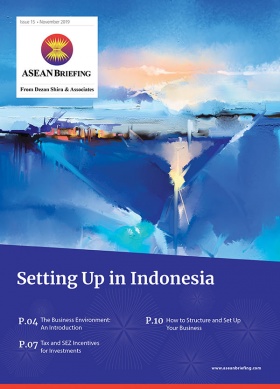Audit and Compliance in Myanmar: A Guide for Foreign Investors
- Myanmar operates two assessment systems: the self-assessment system (SAS) and the official assessment system (OAS).
- The Myanmar Companies Law of 2017 and Myanmar Accountancy Council Law are the main legislation that governs audit and compliance requirements for businesses in the country.
- Companies incorporated in Myanmar must maintain proper books of accounts as well as appoint an auditor by the company’s directors.
The Myanmar Companies Law of 2017 and Myanmar Accountancy Council Law are the main legislation that governs audit and compliance requirements for businesses in the country.
If businesses find conflict between the requirements set out under both laws, then the requirements under the Myanmar Accountancy Council Law will be sufficient.Foreign investors should use the services of registered local advisors to ensure they stay compliant with these regulations.
Auditing and compliance requirements
Myanmar operates two assessment systems: the self-assessment system (SAS) and the official assessment system (OAS).
If the corporate taxpayer is under the SAS, then they are not required to submit audited financial statements to the Internal Revenue Department (IRD). Corporate taxpayers must submit their audited financial statements to the Directorate of Investment and Company Administration (DICA) and the IRD if they are under the OAS.
Small companies, classified as having less than 30 employees and revenue of less than 50 million kyat (US$37,000), are not required to submit their financial statements to DICA.
Annual general meetings
A company is required to hold its first AGM no later than 18 months from the date of incorporation and in subsequent intervals of no more than 15 months. Within 21 days of the AGM, the annual return will need to be filed to the Companies Registration Office.
During an AGM, the following activities will occur:
- Electing directors;
- Appointing auditors;
- Approval of financial statements by shareholders; and
- Approval of the director’s report.
Fiscal periods
The financial year in Myanmar runs from October 1 to September 30. This financial year is mandatory for all businesses. Companies must file any corporate income tax returns and audited financial statements to the IRD.
Appointing auditors
Companies incorporated in Myanmar must maintain proper books of accounts as well as appoint an auditor by the company’s directors. At each AGM, the directors must present the audited financial statements.
A person must hold a certificate from an authorized body entitling them to act as an auditor for companies. All auditors must be either a certified public accountant or hold an accountancy degree in a foreign country recognized by the Myanmar Accountancy Council (MAC).
The following people are prohibited from being appointed as auditors:
- The director or officer of the company;
- A partner of the director or officer;
- Any person indebted to the company; and
- Any person in the employment of the director or officer.
It is the duty of the auditor to state in their report the following:
- Have the books and accounts been maintained in accordance with the law?
- Do the balance sheets represent the true state of financial affairs of the company?
- Was the auditor able to obtain the necessary information from the relevant parties in the company?
- Were the balance sheets drawn up in accordance with the law?
Accounting standards
Financial statements in Myanmar are prepared in accordance with the Myanmar Accounting Standards (MAS) and the Myanmar Financial Reporting Standards (MFRS), implemented by MAC.
MAC has also implemented the MFRS for SMEs, which is adopted from the IFRS for SMEs standards. Publicly accountable companies must only use the MFRS standards.
Both MAS and the MFRS are based on the IFRS principles, except for the following:
- IFRS 9 – financial instruments;
- IFRS 10 – consolidated financial statements;
- IFRS 11 – joint arrangements;
- IFRS 12 – disclosure of interests in other entities; and
- IFRS 13 – fair value measurement.
Annual reports
All companies incorporated in Myanmar must file annual returns with the Directorate of Investment and Company Administration (DICA) within two months of incorporation, and at least once annually after. Companies will receive an electronic reminder from DICA when their annual returns are due.
Annual return documents must contain the following information:
- List of directors;
- The capital structure of the company;
- Information on shareholders; and
- The date when the AGM was conducted.
Penalties for non-requirements
If the taxpayer is late in filing their tax returns, the penalty will be either:
- A fine of five percent of the tax due and an additional one percent of the tax due for each month; or
- A fixed fine of 100,000 kyat (US$74).
If the taxpayer deliberately provides incorrect information or omits vital information, which results in the underpayment of the tax liability, then the following penalties will apply:
- A 25 percent penalty of the underpaid tax; or
- A 75 percent penalty of the underpaid tax if this amount is less than 100 million kyat (US$74,000) or not more than 50 percent of the payable tax.
About Us
ASEAN Briefing is produced by Dezan Shira & Associates. The firm assists foreign investors throughout Asia and maintains offices throughout ASEAN, including in Singapore, Hanoi, Ho Chi Minh City and Jakarta. Please contact us at asia@dezshira.com or visit our website at www.dezshira.com








